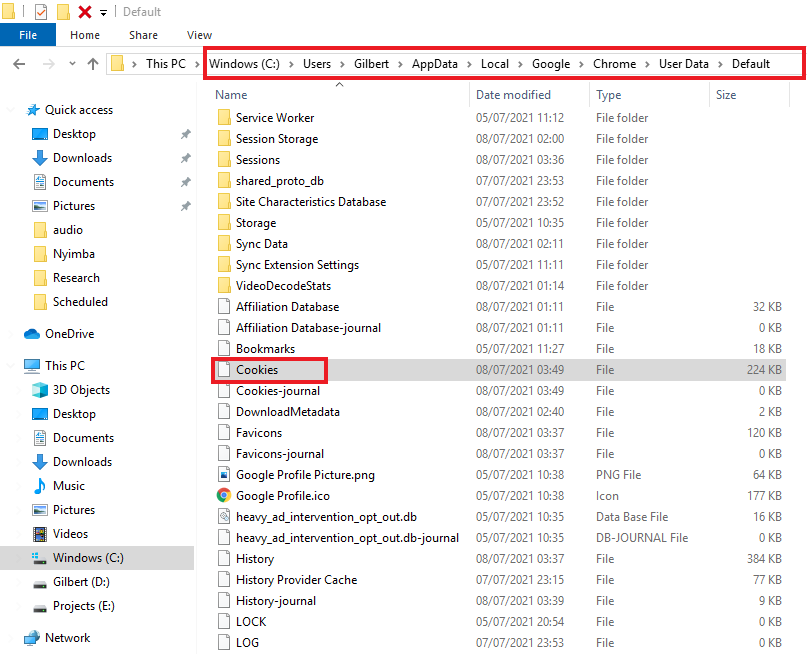Web Cookies And Privacy
You are here

By Nsanzimana Gilbert
Internet users are often suspicious that their actions are being monitored for different reasons that they cannot tell. When they observe how adverts are so much personalized and related to their previous searches, many are worried and think “there is no privacy on the web”. However many in most cases allow this to happen. This functionality can be enabled by Web Cookies and some of the websites that use them give a chance to the users to accept the policies or decline them. But many users actually accept without reading what they are exactly accepting and thus get surprised to see the internet getting “too personal”
As per the current statistics, 41.7% of all websites use cookies. It is for the respect of users’ privacy that they are asked either to decline or accept, though some websites use them without informing the users.
HTTP cookies are useful in the modern internet but can be a vulnerability which hackers may exploit to carry out their malicious acts.
What are Cookies?
Web/browser/HTTP cookies are small text files that are stored on a computer’s browser by a visited website, which make it possible for the website to remember users when re-visited. By remembering your preferences based on the previous behavior, personalized services can be delivered.
How Cookies Work
When a user visits a certain website that uses cookies, the website sends a cookie to the computer which is then received and kept on a specific location of the browser. Say one visits an online retail shop and of course receives a number of adverts and finally makes a purchase of a certain drink, the web server to the website assigns the user an Identification (ID) which it shares with their web browser. The next time they visit the same website, the browser sends the cookie back to the web server and the retail shop does not have to run the same random adverts again. The user receives personalized adverts depending on their previous type of drink purchased. In this way, the user is more satisfied as well as the retailer in terms of time saving.
Note that the data in cookies is not created by the website, it is the data that a user enters on the web in form of payment sites, order forms, registration sites and various web pages--basically, from their previous browser activity, the cookie is generated. The information is then encoded by protection techniques such as Secure Sockets Layers (SSL), thus keeping it secure from attacks.
Cookies are majorly intended to perform three Functions
- Session management. Cookies provide continuity to previous web pages by letting websites recall users and their login information and preferences.
- Tracking. In the case of shopping sites, cookies are used to commodities that certain users viewed previously thus allowing sites to make suggestions about other commodities that the same users may like.
- Personalization. Cookies are used by websites to send personalized adverts depending on the parts of the site or items a user visited.
Where are Cookies stored?
The location of cookies slightly differs depending upon the browser being used. The path is though very easy to find. For windows 10 Google Chrome browser, only two steps can get you to the cookies.
- In file explorer, paste the path C:\Users\Type_Your_User_Name\AppData\Local\Google\Chrome\UserData\Default
- Then Select “Cookies”

Unfortunately web cookies are stored in a language that is not human so you may not clearly understand what they mean.
How safe are Cookies?
Information kept in web cookies does not change and thus cookies by themselves are not harmful. They cannot infect a computer with viruses or malware. The danger lies in the ability by hackers to hijack your cookies and use them to access their web browsing sessions.
Third-party cookies tend to be more troubling. They are generated by websites one is not visiting directly. They are usually linked to adverts that are running on the page being visited at the moment. Thus giving ability to the advertisers to track your browsing history even when the user never visited the individual sites.
Allowing or Declining Cookies?
In some countries, such as those under the EU, websites are required by the law as stated in the EU’s General Data Protection Regulation to notify users before they could read their content of the kind of cookies they are using. This is in order to give internet users a chance to decide on what information they would like to share with websites. However, for the Non-EU countries, a web user in most cases has no choice on whether to allow or decline cookies. Thus information that is meant to be personal may be gathered without the user’s consent to it.
Conclusion
As discussed, web/browser/HTTP cookies cannot inflict your computer with damages but have the capacity to infringe on your browsing privacy. To many users, the privacy issue weighs almost no weight compared to the swift navigation and convenient surfing experience enjoyed while using cookies. It is safer to clear web cookies often to get rid of the least cyber-attack risks.
